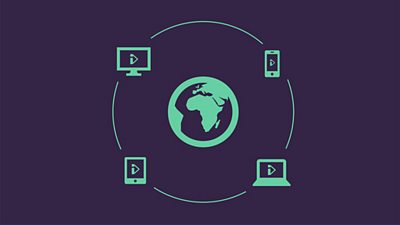
The media industry is changing. We have a wealth of new technologies that give us better pictures and sound, interactivity, immersion and personalisation plus a choice of devices to allow us to consume content whenever and wherever we like.
What used to require bespoke broadcasting hardware can now be done using standard commodity IT kit and software, and much of this can be done in the cloud.
However, as it has become easier to make and consume content, the volume of media we make and consume has increased hugely. The devices we use have shorter lifetimes, and the environmental impact of broadcasting is growing due to increasing energy use, use of rare earth metals and e-waste.
This presents us with some risks but also opportunities for sustainable innovation – innovation that is environmentally, socially and financially sustainable.
At the 91�ȱ�, we have been working on sustainability and improving our environmental performance for a number of years (cp. 91�ȱ� Environment Targets and 91�ȱ� R&D White Paper 189) but have found that some issues are too large and complex for us to tackle alone.
The 91�ȱ� recognises the importance of working with other broadcasters, production companies and industry partners to collectively tackle issues and improve the sustainability of the broadcast industry. We are making good progress as an organisation but the opportunities for success, and the positive impact we can have is far greater if we work with others.
We have already been successful in our work on sustainable production by collaborating with BAFTA through the .
In the ‘From Lens to Screen’ project we have been collaborating with Forum for the Future, IABM and BT to look at sustainability in its broadest sense and how as the industry changes we can also become more sustainable. We need to consider the whole broadcasting and digital media system to identify positive changes that we can make, rather than just considering our own operations in isolation.
We have just completed the first phase of the project where we looked at future trends in the industry and the risks and opportunities for sustainable innovation these present us.
In order to achieve the system level change required, we need partners from across the industry to join us.We want to develop tools to understand our environmental impacts better and to develop an energy- and resource efficient broadcasting system based on sustainable business models.
Join us as we work together to find innovative and sustainable solutions for the whole industry. If you are interested in more information about the project and to join us as a partner, get in touch.
-

Broadcast and Connected Systems section
Broadcast & Connected Systems primarily focuses on how 91�ȱ� content reaches our viewers through broadcast and Internet delivery. This involves the whole broadcast chain from playout, through coding and distribution to consumption on the end-user's device. Our work typically covers a period from now through to 3 years out from deployment.
